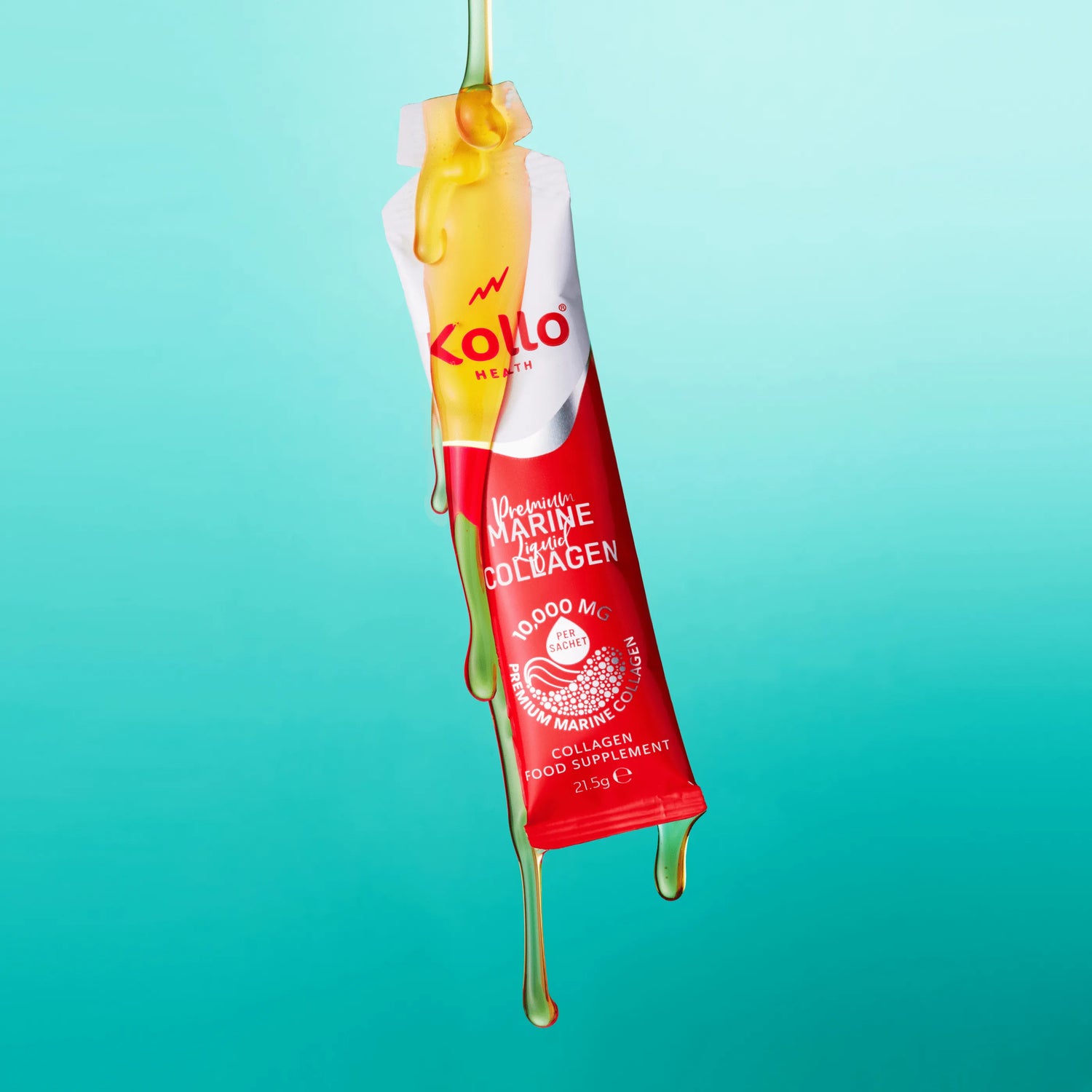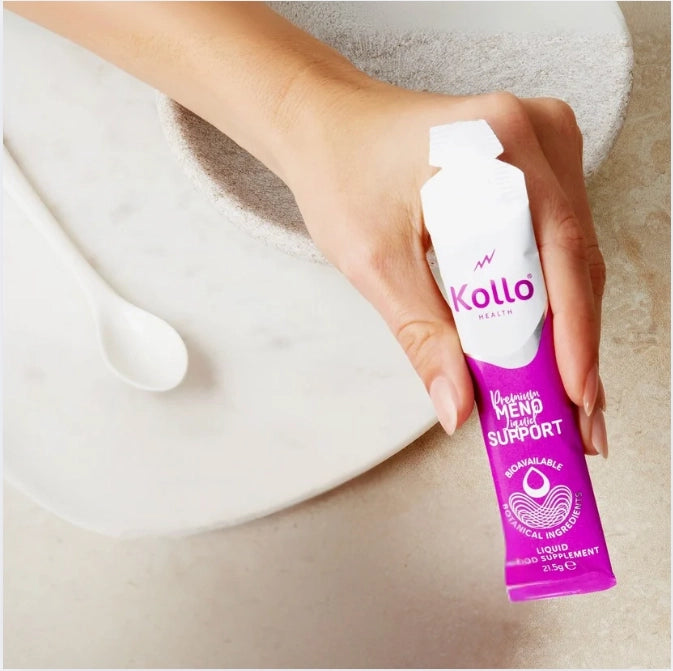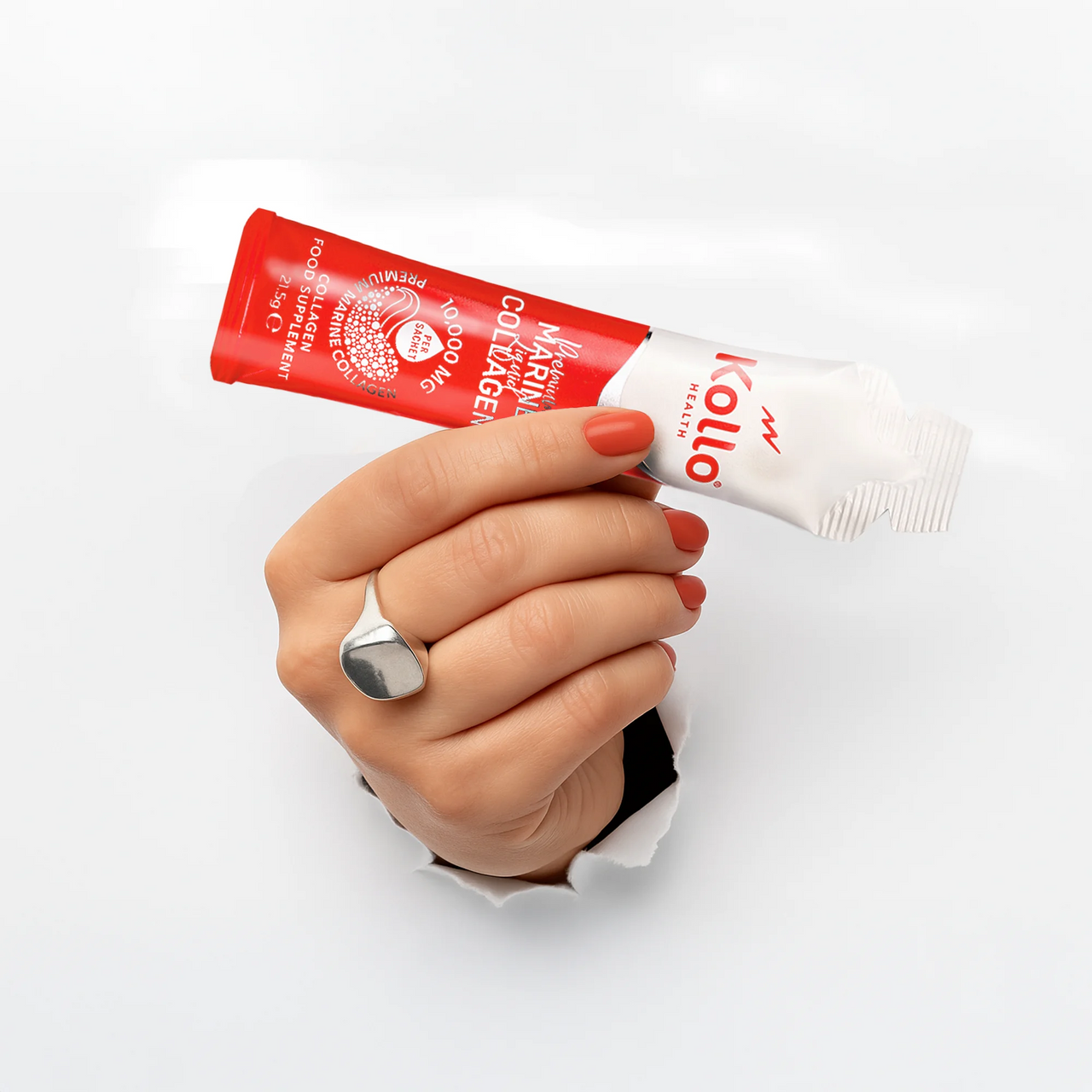Have you noticed fine lines or wrinkles creeping in? It’s possibly due to the loss of collagen, a natural part of ageing. But that doesn't mean you're powerless to maintain that youthful, radiant skin you love.
You can take steps to help promote healthy collagen levels and maintain healthy, glowing skin. In this blog, we’ll share six simple habits you can add to your daily routine to combat collagen loss.
But first, let’s discuss collagen a bit more so you can better understand its importance.
What is Collagen, and How Does It Affect Skin’s Appearance?

Collagen is a protein your body produces naturally. Think of collagen as an invisible scaffolding that keeps your skin firm, plump, and youthful. Collagen fibres are interwoven throughout the deeper layers of your skin. Collagen and elastin production (another protein in the skin responsible for providing elasticity) creates a supportive network.
As we age, our body doesn't produce as much collagen as we do now, and the visible signs of ageing skin become more prominent. One of the first things you might notice is a loss of skin elasticity. Without that supportive network of collagen fibres binding connective tissues, your skin loses its ability to bounce back after stretching or pinching. This lack of skin elasticity leads to wrinkles and fine lines, particularly noticeable around the eyes, mouth, and forehead.
When Does Collagen Loss Occur?
Collagen naturally declines throughout our lives. However, the rate of decline accelerates at different stages. In your 20s, you might notice the first signs of collagen loss, such as subtle fine lines around the eyes or a slight loss of firmness in the skin.
As you enter your 30’s and 40’s, the effects of less collagen become more noticeable. Wrinkles and fine lines become more pronounced, and the skin may lose some youthful plumpness.
Collagen production significantly decreases by your 50s and beyond. This loss can lead to deeper wrinkles, sagging skin, and a drier complexion. However, genetics, lifestyle choices, and sun exposure affect how quickly it declines.
How to Prevent Collagen Loss

Collagen, the most abundant protein in the human body, acts as the scaffolding that provides structure and support to our skin, keeping it plump, elastic, and youthful. Collagen production naturally slows down the older you get, leading to visible signs like wrinkles, fine lines, and a loss of firmness.
Protect Your Skin from the Sun
The sun is one of the biggest adversaries in our journey to achieve timeless beauty. Its UV rays not only tan human skin but also accelerate premature skin ageing, causing collagen breakdown and loss of elasticity. With some simple yet essential strategies, you can shield your skin from harm and preserve its youthful radiance.
Apply a broad-spectrum sunscreen with SPF 30 or higher every day, regardless of the weather. A good sunscreen shields your skin from UVA and UVB rays, preventing collagen breakdown and reducing the risk of sun damage. When outdoors, wear protective clothing, such as long sleeves and hats with wide brims, to shield your skin from the sun and free radicals.
Whenever possible, seek shade during the peak sun hours of 10 am to 4 pm to minimise UV exposure and reduce the risk of sunburn and skin damage. Who knew that preventing the loss of collagen and cancer risks in the skin could be done together?
Stay Hydrated
Hydration plays a crucial role in our quest for radiant skin. But it’s not just about slathering on moisturisers; it starts from within. So, let’s explore some simple yet effective strategies to keep your skin hydrated and vibrant.
One helpful tip is to monitor your urine colour — aim for pale yellow to indicate proper hydration. Drink plenty of water throughout the day. Eight glasses daily is a good starting point, but your needs may vary depending on your activity level and climate.
If plain water seems boring, there are ways to add flavour! Try infusing your water with slices of lemon, cucumber, or berries for a refreshing twist.
Supplement your water intake with fruits and vegetables that are high in water content. Think watermelon, cucumber, celery, and tomatoes — these delicious options will keep you hydrated and add essential nutrients to your diet.
Add Foods Rich in Collagen
The health of your skin is directly linked to what you eat and drink. A balanced diet rich in specific nutrients can support collagen production and help fight the signs of ageing.
Collagen synthesis comes from amino acids, the building blocks of protein. Include various protein sources, like lean meat, fish, eggs, beans, and lentils. These provide your body with the raw materials it needs to manufacture collagen.
This powerful antioxidant shields skin cells from damage caused by free radicals, which can accelerate collagen breakdown and boost collagen and elastin production. Citrus fruits, bell peppers, berries, and broccoli are all excellent sources of vitamin C to add to your plate.
Focus on foods rich in glycine and proline. These two specific amino acids play a crucial role in collagen synthesis. Bone broth, fish, and organ meats are good sources of glycine, while red meat, dairy products, and egg whites contain proline.
Take High-Quality Collagen Supplements
While a healthy diet may help replenish collagen levels, collagen supplements can provide an extra boost. Look for a reputable brand that offers a liquid marine supplement with hydrolysed collagen peptides. These little messengers tell your body to increase collagen production. Liquid collagen benefits are vast, but if you’re unsure about liquid collagen vs powder form, our blog can help.
When choosing a multivitamin with collagen for hair and skin health, consider the type of collagen it contains. Look for one that specifies types I and III, which offer the most benefits for the skin. The recommended dosage can vary depending on the brand and your needs, so consult a healthcare professional to find the right amount.
Limit Smoking and Alcohol
Smoking is a double whammy for your skin's health. The harmful chemicals in cigarettes restrict blood flow to the skin, making it harder for essential nutrients and oxygen, crucial for collagen production, to reach your skin cells. The result? A dull, sallow complexion and the development of premature wrinkles.
Alcohol is a diuretic, which means it increases urination and can lead to dehydration. When your body is dehydrated, your skin suffers, too. It loses its plumpness and elasticity, leading to the formation of fine lines and wrinkles.
Get Quality Sleep
Sleep isn't just about feeling refreshed in the morning. It plays a vital role in maintaining healthy skin. During sleep, your body repairs and restores itself at a cellular level, including collagen production. When you're sleep-deprived, this process slows down, leading to dullness and a loss of elasticity in your skin.
Establish a consistent sleep schedule to promote quality sleep and support the skin's ageing process. Go to bed and wake up simultaneously each day, even on weekends. This schedule helps regulate your body's natural sleep-wake cycle, the circadian rhythm.
Optimise your sleep environment for maximum rest. Make sure your bedroom is dark, quiet, and cool. Invest in blackout curtains to block out light, an earplug mask to minimise noise disruptions, and comfortable bedding to create a sleep-conducive haven.
Supporting Collagen Production for Lasting Skin Health
While collagen loss is a natural part of ageing, there are steps you can take to slow it down and maintain healthy, radiant skin. Incorporating these simple habits into your daily routine promotes collagen production, protects your skin from damage, and keeps your complexion glowing for years.
Ready to take action and support your skin's natural collagen production from within? Explore a well-balanced diet rich in the nutrients mentioned throughout this guide. Many people also find success with high-quality, hydrolysed collagen peptides.
Men, believe it or not, collagen works for you too. Read our blog on the top 5 reasons why men should take a collagen supplement, and you’ll see how this helps you, too.
Marine collagen peptides, like Kollo Health’s liquid marine collagen 10,000mg, are popular due to their high absorption rate. Shop today and add this to your skincare regimen, and look forward to fewer wrinkles and healthier, radiant skin.







